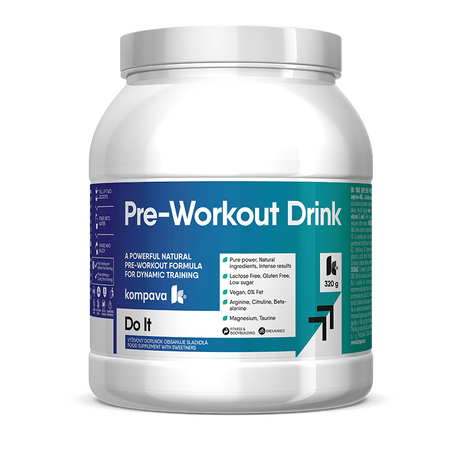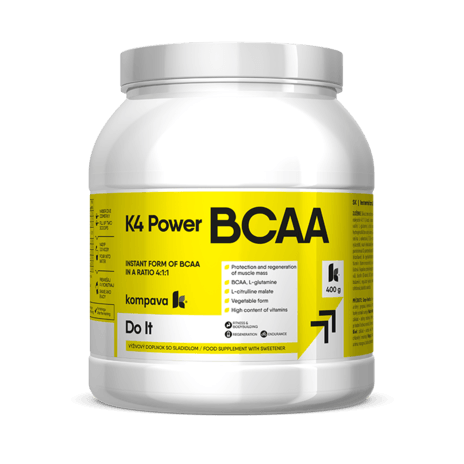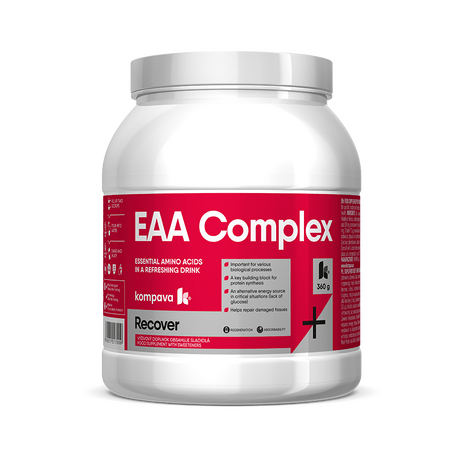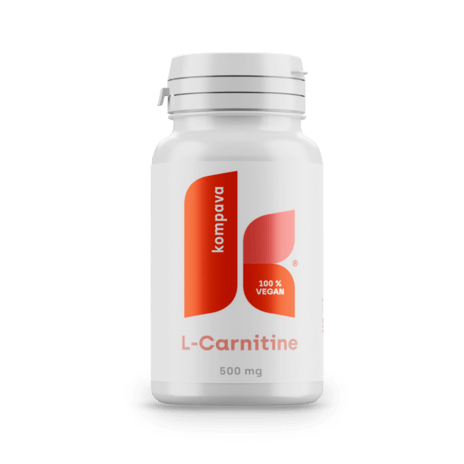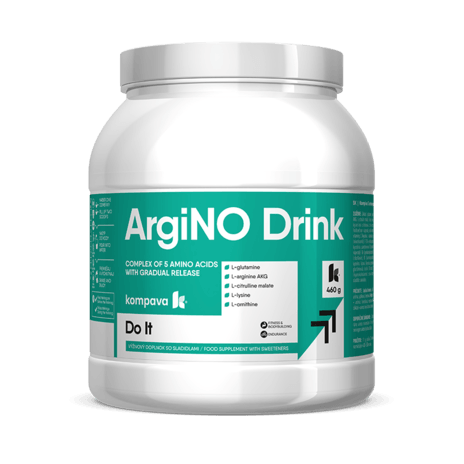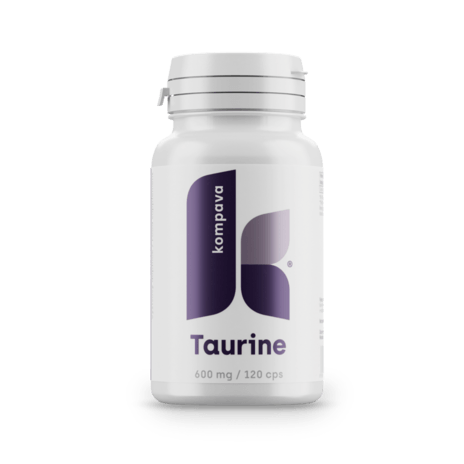Amino acids / BCAAs
Amino acids act as chemical messengers in communication between cells. They contain nitrogen, carbon, hydrogen, and oxygen. They are the basic building blocks of proteins, forming a substantial part of our body. They are like muscle builders, providing the necessary foundations for muscle growth and regeneration. They aid in reducing muscle fatigue and support faster regeneration, which is crucial for maintaining muscle tone and performance. Additionally, they protect muscles from the breakdown of muscle proteins. Amino acids can be essential (BCAA), which the body cannot produce on its own, and non-essential, which the body can synthesize.
Amino acids/BCAA
Amino acids act as chemical messengers in communication between cells. They contain nitrogen, carbon, hydrogen, and oxygen. They are the basic building blocks of proteins, forming a substantial part of our body. They are like muscle builders, providing the necessary foundations for muscle growth and regeneration. They aid in reducing muscle fatigue and support faster regeneration, which is crucial for maintaining muscle tone and performance. Additionally, they protect muscles from the breakdown of muscle proteins. Amino acids can be essential (BCAA), which the body cannot produce on its own, and non-essential, which the body can synthesize.
BCAA = Branch Chain Amino Acids
Branch Chain Amino Acids (have at least one side chain protruding from one side of the molecular structure). This category includes valine, leucine, and isoleucine.
Main Effects of Amino Acids
- Building Material for Tissues
They form the fundamental building material for muscles, tissues, and organs. Without a sufficient intake of amino acids, our body would not be able to grow, repair damaged cells, and maintain tissues in good condition.
- Protein Synthesis
This is a crucial process in the body. Proteins play a role in various essential functions, including oxygen transport in the blood, regulation of cell growth and renewal, and serving as the fundamental building blocks of enzymes.
- Energy Source
In situations where there is a shortage of glucose (the main energy source), amino acids can be broken down to produce energy. This occurs, for instance, during prolonged fasting or demanding physical activity.
- Support for Various Functions
Some amino acids have specific effects on health and organism functioning. For example, tryptophan is a precursor to the neurotransmitter serotonin, which influences mood and feelings of happiness.
- And many other benefits for the body.
Amino acids are divided into two basic groups: essential amino acids and non-essential amino acids.
Essential amino acids
Your body cannot produce them on its own. You must obtain them from your diet. These include leucine, isoleucine, valine, methionine, phenylalanine, tryptophan, arginine, taurine, and lysine. They are crucial for tissue growth, repair, and ensuring proper function in various metabolic processes within your body.
As they need to be acquired from your diet, it is important to include foods rich in these amino acids in your meals. Dietary sources of amino acids include meat, fish, dairy products, eggs, and various plant-based protein sources such as beans, nuts, and seeds.
Non-essential amino acids
Your body can produce them on its own. They are not directly dependent on income purely from food. These include alanine, cysteine, glutamine, tyrosine, carnitine, among others. Non-essential amino acids play significant roles in various metabolic processes.
Some amino acids possess the ability to form functional proteins that have specific roles, such as enzymes (catalyzing chemical reactions), hormones (regulating various body processes), or antibodies (immune system).
